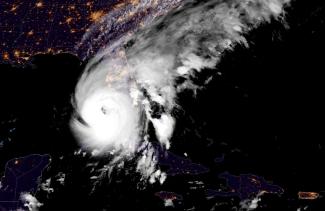Media
Journalists must consider the global public good

According to Barbie Zelizer, who teaches journalism at the University of Pennsylvania, US media have a pattern of covering international affairs in terms of “us and them”. One of their core concerns is whether the US is leading the international community or not. The implication is that journalism in the USA only pays little attention to whether US foreign policy is justified and what impacts it has. In the professor’s eyes, this attitude dates back to the Cold War and is clearly outdated.
She made the case in her keynote address at this year’s annual FOME conference, which was hosted by the Interlink Academy in Hamburg last month and attended by participants from around the world. FOME is a network of 31 organisations that support independent media in developing countries. The acronym stands for “Forum Medien und Entwickung“ (Forum Media and Development).
Zelizer makes sense. The polarising “us and them” approach only fits very few international issues. While Cold War thinking is somewhat relevant regarding the Ukraine war, it has limits even in this context. Zelizer argues, for example, that US media are downplaying Ukraine’s interest in negotiations. On the other hand, the Kremlin, so far, has shown very little serious interest in talks. The policy it is implementing, however, is more aggressive and brutal policy than what the Soviet Union did during the Cold War.
Just consider inflation
In regard to most other international issues, polarised coverage pitting supposedly good governments against bad ones is misleading. Consider, for example, the growing tensions between Beijing and Washington. They have been getting worse in the past 10 years, but that does not mean that the international community has an interest in one side prevailing. Not even the people of the two superpowers themselves have such an interest. The point is that both China and the USA have benefited from an integrated global economy. Disintegration will cause hardship everywhere.
An obvious consequence of fragmenting global trade is high inflation. We are feeling that pain already. Media pundits typically tell us that central banks’ interest rates keep price rises in check, but that is only one part of a rather complex picture. An important reason prices were comparatively stable in western nations in the past 30 years were the low prices of imported Chinese goods. Accordingly, supply-chain snags in the course of the coronavirus pandemic have triggered inflation, which was made worse this year as Russia’s invasion of Ukraine drove up world-market prices for commodities.
As D+C/E+Z has argued for a long time, humanity is facing a host of global problems that nation states cannot manage on their own (see for example this recent comment on www.dandc.eu) The list of those problems is long. Among other things, it includes macroeconomic stability, global heating, disease control, food security and organised crime.
Our species urgently needs global solutions. The big question is not which government is leading. It is whether we are moving towards or away from those solutions. All nations must cooperate. Journalists that want to do their job properly should assess to what extent any initiative taken by any national government is useful or harmful in terms of achieving the global common good. Peace, which also requires international cooperation, is itself an essential precondition for achieving the Sustainable Development Goals (see Anna-Katharina Hornidge on www.dandc.eu).
All sovereign nations have endorsed this agenda. It spells out their shared vision of the global common good.
More nuanced picture
Once we adopt the global-common-goods perspective, the picture of global relations becomes more nuanced. Not everything Beijing does is evil, and not everything Washington does is good.
There still are obvious villains, however. The global-public-good perspective clearly shows Russia to be doing massive harm. Its war on Ukraine only serves a narrowly understood national interest, but makes global problems worse.
The rhetoric of a multipolar world order, which both Beijing and Moscow rely on, is actually only the mirror image of US media’s obsession with global leadership. Simply opposing everything the White House does is equally distorting as endorsing it. President Vladimir Putin’s lie that a US-led west wants to destroy Russia, is worse, of course.
Concern for the global interest, moreover, is often disparaged by right-wing populists. Former US President Donald Trump and others have a pattern of claiming to represent “the people” against evil “globalist elites”. Such propaganda does not make sense because it denies global interdependencies and pretends that nation states can do whatever their leaders want.
In spite of their populist rhetoric, moreover, right-wing authoritarians typically promote the economic interests of oligarchs and plutocrats (see a previous comment of mine on www.dandc.eu). The full truth is that not only foreign affairs need to be covered from the global-public-goods perspective, but domestic politics as well. Ultimately, undermining the global public good only makes it harder to achieve the global good at any level.
Hans Dembowski is the editor in chief of D+C/E+Z.
euz.editor@dandc.eu
Correction, 21 October 11:50 am Frankfurt time: The "Not" at the beginning of the following sentence was missing in the original post: "Not even the people of the two superpowers themselves have such an interest. The point is that both China and the USA have benefited from an integrated global economy."







